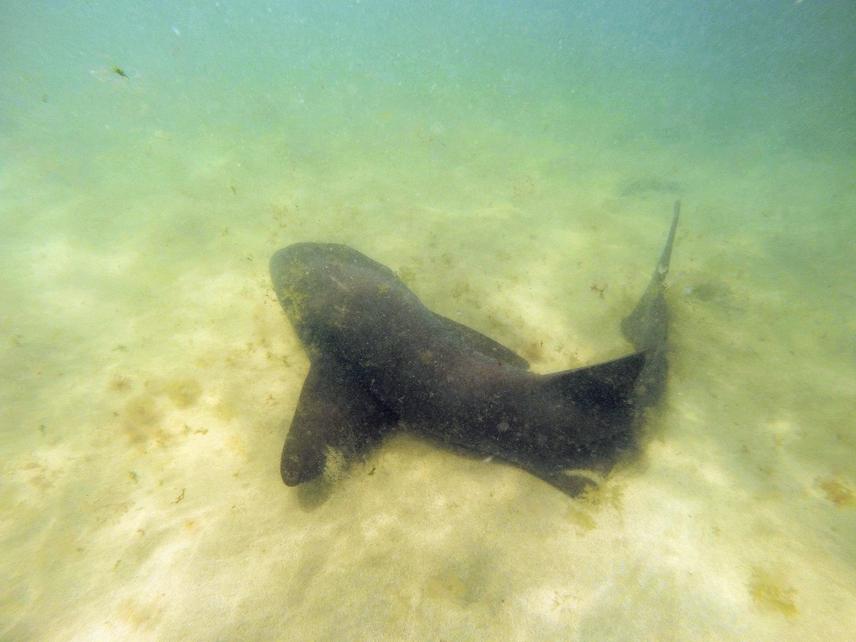Katharina Fietz
The project aims to use genetic methodology to obtain the first critical data about abundance, population structure, degree of isolation, and the use of nursery areas of a model shark species around an island in Cape Verde. It forms the basis to facilitate long-term participatory monitoring of shark fauna in Cape Verde.

Nurse shark. © FMB.
The Cape Verde Archipelago is home to a variety of shark species, including e.g. common smoothhound and lemon sharks (listed as Vulnerable and Near Threatened by the IUCN). With slow maturity and low productivity, those species are in severe danger of extinction if not managed appropriately. Around Cape Verdes island of Maio, sharks are by-caught and intentionally targeted while the lack of basic knowledge on species’ habitat use and local abundance does not allow evaluation of the effectiveness of current management measures. The establishment of strong baselines is critical to support operation of Maio’s MPA. Lemon sharks (Negaprion brevirostris), nurse sharks (Ginglymostoma cirratum), and common smoothhounds (Mustelus mustelus) constitute ideal focal species to initiate long-term monitoring. Suspected lemon and nurse shark nursery grounds around Maio and growing conflict with local fisheries characterize the local population. Frequent bycatches of common smoothhounds in artisanal fisheries render them equally vulnerable on a local level. All three species have a coastal distribution and display some level of site-fidelity, which influences population structuring and the degree of isolation between different areas.
We are working in close collaboration with the local community to collect biopsy samples from by-caught sharks. Participatory training of local fishermen and researchers in sampling methods will create local expert fieldwork personnel, will raise awareness and will facilitate continuation of sampling on a long-term basis. An emphasis in this collaboration will be to maximize benefits from by-caught sharks, but to refrain from actively targeting them. In this pilot project, we will determine if nursery areas of focal species are present around Maio. Using genetic methodology, we will determine the degree of genetic differentiation of shark populations between different localities, and will estimate population size. Initial results and the development of local collaborations during this pilot phase will serve as a launch pat for developing a long-term monitoring system of shark fauna in Maio and eventually in Cape Verde. Generated data will support MPA management in Maio and on a national level.